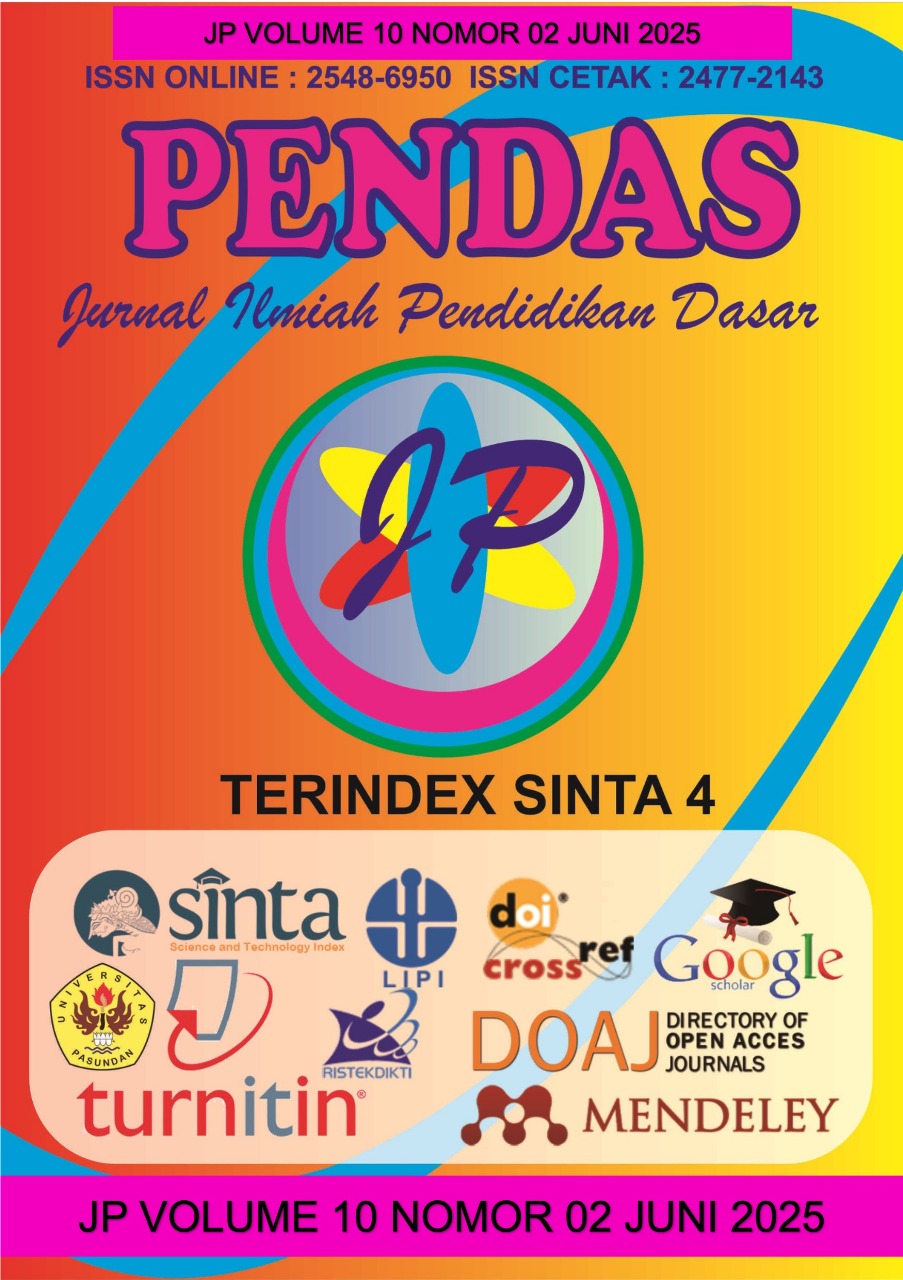PERCEIVED EXAGGERATED DAN BRAND TRUST TERHADAP REPURCHASE INTENTION MELALUI ATTITUDE TOWARD ADVERTISING (STUDI PADA PRODUK SKINCARE DI INDONESIA)
DOI:
https://doi.org/10.23969/jp.v10i2.30764Keywords:
Keyword : Perceived Exaggerated, Repurchase Intention, Brand Trust, Attitude Toward AdvertisingAbstract
This study takes the title: ‘’The Influence of Perceived Exaggeration and Brand Trust on Repurchase Intention Mediated by Attitude Toward Advertising (A Study on Skincare Products in Indonesia)’’. The aims of this study is to develop a framework to investigate the mediating role of attitude toward advertising for the relationship between perceived exaggerated, brand trust and repurchase intention.The sample in this research was 250 respondents who were taken using a purpose random sampling method. Further, structural equation model with the help of AMOS 29.0 software was used to test the relationship among the proposed constructs. This paper has considered perceived exaggerated and brand trust as exogenous construct, attitude toward advertising as a mediating construct and repurchase intention as endogenous construct.
The result it shows that: (1) perceived exaggerated has a significant positive effect on repurchase intention. (2) brand trust has a significant positive effect on repurchase intention. (3) perceived exaggerated has a significant positive effect on attitude toward advertising. (4) brand trust has a significant positive effect on attitude toward advertising. (5) attitude toward advertising has a significant positive effect on repurchase intention. (6) attitude toward advertising mediate the effect of perceived exaggerated on repurchase intention. (7) attitude toward advertising mediate the effect of brand trust on repurchase intention.
Keyword : Perceived Exaggerated, Repurchase Intention, Brand Trust, Attitude Toward Advertising
Downloads
References
Aanisah. (2023). Perlindungan Hukum Bagi Konsumen Disebabkan Overclaim Pada Deskripsi Produk Kosmetik X (Perawatan Wajah).
Ayar, İ. (2024). The Impact of Exaggerated and Deceptive Influencer Advertising and Influencer Attractiveness on Consumer Purchase Intentions. İktisadi İdari ve Siyasal Araştırmalar Dergisi, 9(25), 837–853. https://doi.org/10.25204/iktisad.1480293
Droz, N., & Marques-Vidal, P. (2014). Selling dreams: An overview of slimming products’ advertisements in Switzerland. Obesity Facts, 7(5), 282–288. https://doi.org/10.1159/000368446
Ducoffe, R. H., & Curlo, E. (2000). Advertising value and advertising processing. Journal of Marketing Communications, 6(4), 247–262. https://doi.org/10.1080/135272600750036364
Fadilla, Z., Ketut Ngurah Ardiawan, M., Eka Sari Karimuddin Abdullah, M., Jannah Ummul Aiman, M., & Hasda, S. (2022). METODOLOGI PENELITIAN KUANTITATIF (nanda saputra, Ed.). Yayasan Penerbit Muhammad Zaini. http://penerbitzaini.com
Fowler, J. G., Reisenwitz, T. H., & Carlson, L. (2015). Deception in cosmetics advertising: Examining cosmetics advertising claims in fashion magazine ads. Journal of Global Fashion Marketing, 6(3), 194–206. https://doi.org/10.1080/20932685.2015.1032319
Kurnia Hidayat, I., Sumarwan, U., Noor Yuliati, L., Studi Gizi Masyarakat dan Sumberdaya Keluarga, P., & Pertanian, F. (2009). Persepsi Dan Sikap Ibu Terhadap Klaim Gizi Dalam Iklan Susu Formula Lanjutan Anak Usia Prasekolah. In Jur. Ilm. Kel. dan Kons (Vol. 2, Issue 1). https://doi.org/https://doi.org/10.24156/jikk.2009.2.1.77
Marks, L. J., & Kamins, M. A. (1988). The Use of Product Sampling and Advertising: Effects of Sequence of Exposure and Degree of Advertising Claim Exaggeration on Consumers’ Belief Strength, Belief Confidence, and Attitudes. In Source: Journal of Marketing Research (Vol. 25, Issue 3). http://www.jstor.orgURL:http://www.jstor.org/stable/3172529
Pakaila, J. R., Aydin, R. M., & Abbiyya, S. W. (2024). TREN OVERCLAIM DALAM IKLAN INDUSTRI KECANTIKAN: ANALISIS ETIKA TERAPAN PADA PRODUK SKINCARE DI INDONESIA. https://doi.org/https://doi.org/10.35127/kabillah.v9i2.424
Punjani, K. K., & Kumar, V. V. R. (2021). Impact of advertising puffery and celebrity trustworthiness on attitude and purchase intent: a study on Indian youth. Journal of Advances in Management Research, 18(5), 738–757. https://doi.org/10.1108/JAMR-06-2020-0133
Razak, N. S. A., Marimuthu, M., Omar, A., & Mamat, M. (2014). Trust and Repurchase Intention on Online Tourism Services among Malaysian Consumers. Procedia - Social and Behavioral Sciences, 130, 577–582. https://doi.org/10.1016/j.sbspro.2014.04.067
Rimayang Anggun, Magneta Hisyam, Amira, & Adinda Mahfuza. (2024). Pengaruh Overclaim Produk, Kesadaran Merek, Kepuasan Konsumen, Loyalitas Konsumen, Terhadap Intensi Membeli Ulang Produk Skincare Skintific Padamahasiswa Aktif Universitas Riau Kepulauan. Jurnal Bening, 11(1). Sarwono, J. (2010). Pengertian Dasar Structural Equation Modeling. https://www.researchgate.net/publication/266203589
Soni, P., & Kaur, K. (2023). Examining claims on food packages in India: Are they inadequate and deceptive? Measurement: Food, 11. https://doi.org/10.1016/j.meafoo.2023.100100
Downloads
Published
Issue
Section
License
Copyright (c) 2025 Pendas : Jurnal Ilmiah Pendidikan Dasar

This work is licensed under a Creative Commons Attribution 4.0 International License.














































